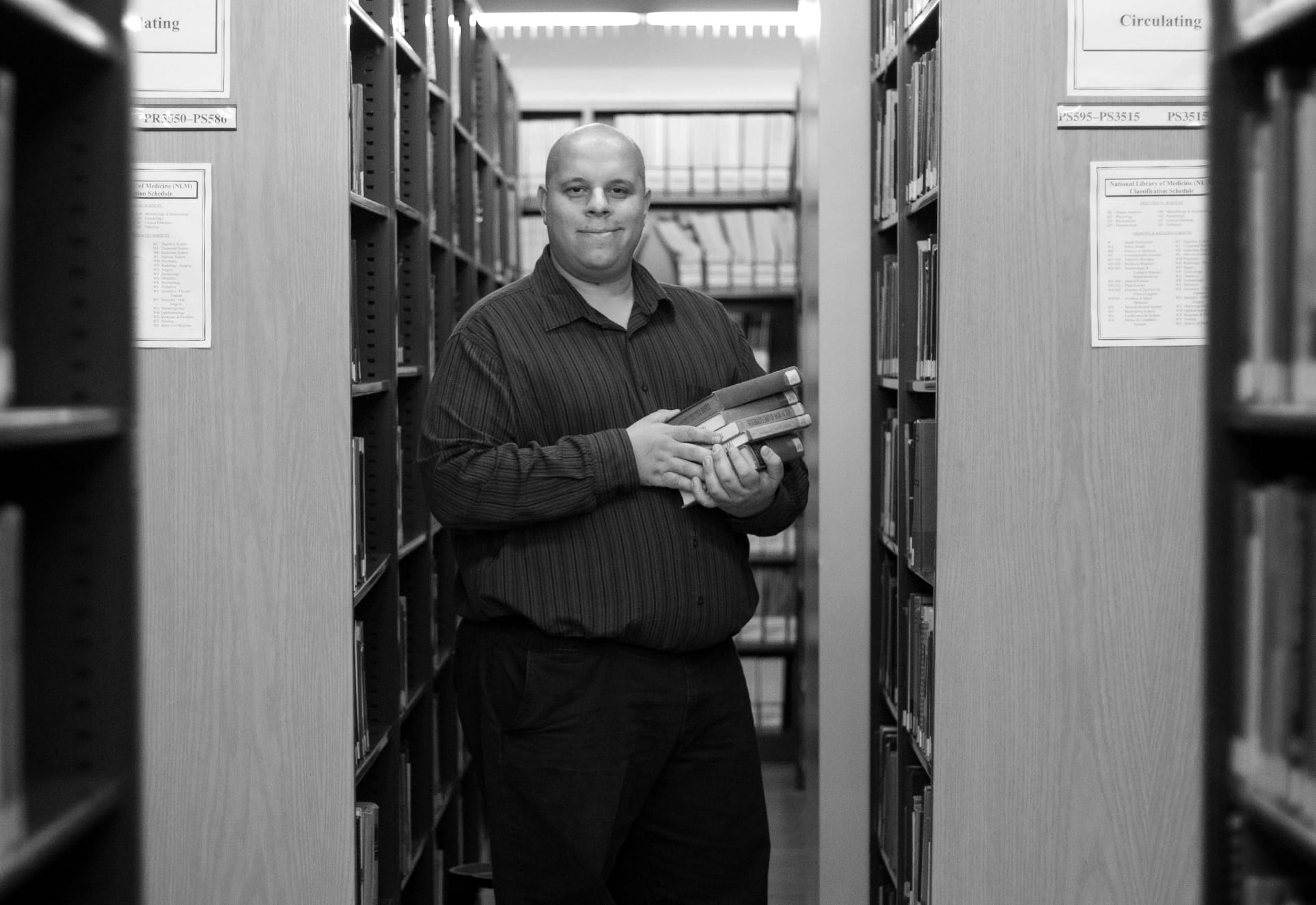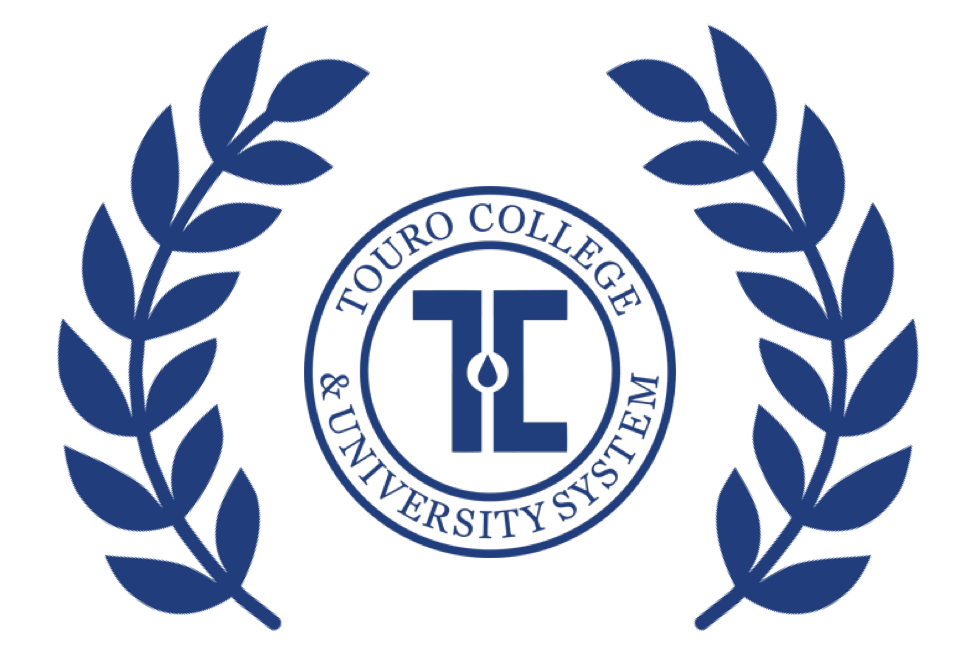Giuseppe Infante, M.F.A.
Faculty Instructor
New York School of Career and Applied Studies

What His Students Say About Him
“Professor Infante is an exceptional person. He is always willing to help his students and he sees the potential in them, even if they don’t see it in themselves. Joe opened up our minds beyond our usual ways of thinking and pushed us beyond our comfort zone.”
— Zulma Morales
The way he tells it, Professor Giuseppe Infante’s life plans were totally derailed by a best-seller he bought in an airport. About to start his studies for a nursing degree at Long Island University (LIU), Infante picked up Jurassic Park on an airport book rack.
“I was blown away,” recalled Infante, commonly known as Joe to students and fellow faculty alike. “I started taking liberal arts class and I loved these literature classes about Greek mythology and African American literature. I was two semesters away from becoming a registered nurse and taking courses in pharmacology. At the time, I was working at a hospital, but I realized I just wanted to read books.”
Infante switched his major.
“Some people thought I was crazy,” said Infante. “But I started reading poetry and it was the best move I ever made.”
Infante said his love of poetry partly stemmed from his musical ability: Infante plays several instruments. “As adults, bands typically disintegrate; people have jobs, spouses, and kids. But poetry you can do all on your own.”
Infante’s professor, the poet Lewis Warsh, became his mentor and pushed him to attend an MFA at LIU, where he focused on poetry and wrote the poems that would compose his first collection of poetry, ways of dying naked in mexico city.
While he was in his final year, Infante began teaching at Touro College New York School of Career and Applied Studies (NYSCAS) and working in the school’s writing center. One thing that immediately impressed Infante was how active his students were in class, especially given that many worked a full day before class and had families to take care of at home.
“Many of our students in NYSCAS are older and more mature than the typical student body,” Infante explained. “They work all day and come to class. I learn from them. My attitude quickly became: How can I give them what they need to succeed?”
Concern for his students’ workload also affected his class structure. Instead of 300-page novels, Infante began favoring teaching his students through short stories. “We’re a click-nation,” said Infante. “Everything is 160 characters or less and I’m conscious of that. Many of my students are science majors or human resource majors, so I want something to grab them quickly and engage them.”
Through his classes, Infante stresses the universalizing potential of literature.
“Take for example, James Baldwin’s Sonny's Blues,” stated Infante. “The lead character is a black man in Harlem dealing with societal factors like racism and poverty. On my own, I can’t understand that, but through reading the story I can connect to it. Similarly, Joyce Carol Oates’s short story, Where Are You Going, Where Have You Been?, puts you in the mind of a 15-year-old girl in the 1960s. Stories have been a part of humanity’s oral tradition forever. They open up conversations for us to the bigger picture.”
And this in turn, Infante hopes, leads to something greater: empathy.
“When you’re studying science, a cell is always a cell, but reading a story is a subjective experience and it allows you to see the world in a different kind of way,” said Infante. “My hope is that the next time my students are driving and someone cuts them off, they might think about that person in the next car and wonder: what is it in their life that makes them act the way they do? Maybe their wife is pregnant, or they have an important medical test. Literature makes you conscious of humanity. You can read a story and it can change your day, even your life. We’ve had people cry in class and it’s transcending.”
“You don’t need to be Hemingway; you don’t need to be a poet; but you need to understand the value and importance of clear writing."
GiuSEPPE INFANTE
In addition to his literature courses, Infante teaches several sections of college writing. Having the ability to write well is a requirement for almost every job, Infante maintains.
“I want my students to learn organizational skills for their writing. If one of my students is a sanitation worker, he might move up to become a manager and he’ll need to be able to write. If you’re a nurse, you need to write clear medical notes. You don’t need to be Hemingway; you don’t need to be a poet; but you need to understand the value and importance of clear writing.”
Recently, one of his students was accepted into his alma mater, LIU, for an MFA.
“It doesn’t guarantee a good paycheck, but you have to follow your heart,” laughed Infante. “I could’ve been making bank as a nurse, but would I be walking around with a smile all day? I’m genuinely happy to be here. I love it. I’m on campus for twelve hours, but I don’t feel like I’m working.”
Poet and Publisher
Infante launched his own publishing house called Overpass Books. The house published Infante’s first collection of poetry: ways of dying naked in mexico city. The press has published several books including collections by his mentor Lewis Warsh.
One Poem Everyone Should Read
Howl by Allen Ginsburg. “It was declared obscene when it was published,” said Infante. “It talks about the grittiness of humanity. You might not like it, but you should read it.”
Interesting Fact
Infante is a self-described horror fanatic. He has his favorite three movies tattooed on his arms: Phantasm, Nightmare on Elm Street, and Evil Dead. He also has a podcast about the genre and hopes to eventually create his own horror movie. “I think it was Stephen King who said that social commentary is embedded in horror. Look at the classic Night of the Living Dead by George Romero, it’s a brilliant critique of society, beginning with the fact that the protagonist is black, and the film has parallels with the Civil Rights movement.”


